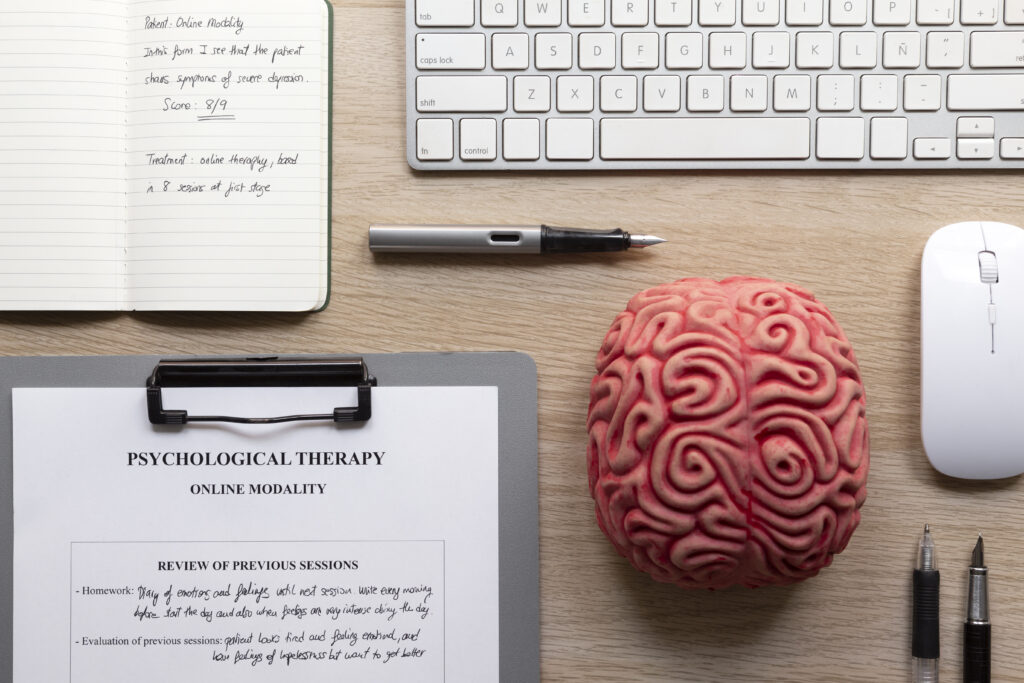What Happens In An Adult Neuropsychological Evaluation?
Neuropsychological testing plays a crucial role in assessing various cognitive domains, such as intellectual capacity, executive functioning—encompassing attention, planning, organization, initiation, and self-monitoring—along with visual and auditory perception, language, memory, motor abilities, and social/emotional functioning. At FC PsychExperts , special attention is provided to adults facing memory challenges and various neurodegenerative conditions. Cognitive decline can stem from neurodegenerative disorders, such as Alzheimer’s disease and other dementias, as well as psychiatric conditions, including depression and anxiety.
To accurately evaluate how the brain and nervous system are functioning, an extensive assessment using neuropsychological testing is conducted.

The Evaluation and Testing Process: A Comprehensive Approach
A neuropsychological evaluation is a thorough and systematic process that provides a detailed understanding of an individual’s cognitive and emotional health. The evaluation begins with an in-depth interview conducted by a skilled neuropsychologist, followed by the administration of an extensive array of standardized written and verbal tests. These tests are meticulously chosen to assess various cognitive and psychological functions, ensuring a holistic view of the patient’s mental well-being.
This process involves assessing intellectual functioning, where the patient’s cognitive strengths and weaknesses are carefully evaluated. Additionally, the evaluation includes a comprehensive examination of the patient’s mood, behavior, and stress levels, which are vital indicators of overall mental health.
Neuropsychological testing is designed to identify specific strengths and weaknesses across several key areas, including:
- Attention: Assessing the ability to maintain focus and sustain concentration.
- Behavior: Evaluating patterns of behavior and their impact on daily functioning.
- Executive Functioning: Measuring higher-order cognitive skills such as planning, decision-making, and problem-solving.
- Intelligence: Gauging overall intellectual abilities in comparison to normative data.
- Language: Analyzing verbal skills, including comprehension and expression.
- Memory: Assessing both short-term and long-term memory capabilities.
- Mood and Personality: Exploring emotional states and personality traits that influence mental health.
- Processing Speed: Measuring the efficiency at which information is taken in, processed, and responded to.
- Visual-Spatial Functioning: Evaluating the ability to perceive and interact with visual and spatial information.
Through this comprehensive evaluation, the neuropsychologist develops a deep understanding of the patient’s cognitive and emotional profile. This understanding is crucial for creating an effective treatment plan tailored to the individual’s unique needs.

Common Reasons for Neuropsychological Evaluation
There are several key reasons why a neuropsychological evaluation might be necessary. Neurological conditions such as stroke, brain injury, or dementia often require these assessments. They help to identify the extent of cognitive impairment and guide treatment plans.
Learning disabilities are another common cause for evaluation. These assessments can pinpoint specific learning challenges, leading to customized educational strategies that enhance academic performance. ADHD, a prevalent condition, also benefits from evaluation. The process helps determine the severity of symptoms and informs the best course of treatment.
Psychological conditions like depression and anxiety may also lead to neuropsychological evaluations. These conditions can affect cognitive functions, and testing can clarify their impact. This information is vital for developing precise and effective treatment plans.
Other reasons for evaluation include vocational assessments and legal matters. Vocational evaluations determine an individual’s ability to perform job-related tasks, especially after injury or illness. In legal contexts, neuropsychological evaluations provide objective evidence for cases involving competency or other cognitive concerns.

Benefits of a Neuropsychological Evaluation
A neuropsychological evaluation offers a comprehensive assessment that can be life-changing for individuals experiencing cognitive, behavioral, or emotional difficulties. By measuring various cognitive functions, such as memory, attention, problem-solving, and language skills, the evaluation helps to identify specific areas of the brain that may be underperforming or impaired. This thorough understanding provides a clear picture of an individual’s cognitive strengths and weaknesses, which is crucial for tailoring interventions and support strategies. Additionally, the insights gained can guide healthcare providers in making accurate diagnoses and creating personalized treatment plans that address the unique needs of the individual.
How the Results Can Help Individuals
The results from a neuropsychological evaluation serve as a roadmap for individuals navigating cognitive challenges. These insights not only clarify the underlying causes of their difficulties but also empower them with actionable steps to improve their daily functioning. For example, an individual struggling with memory issues may benefit from cognitive rehabilitation programs specifically designed to enhance memory retention. Furthermore, the evaluation can uncover previously undetected conditions, such as learning disabilities or ADHD, allowing for targeted interventions that can significantly improve academic and professional outcomes. By understanding their cognitive profile, individuals can make informed decisions about their education, career, and lifestyle, ultimately leading to a higher quality of life.
Importance of Early Identification and Intervention
Early identification and intervention are critical components in addressing cognitive and psychological issues before they become more severe. A neuropsychological evaluation plays a pivotal role in this process by detecting early signs of cognitive decline or mental health disorders that might otherwise go unnoticed. Early detection allows for timely intervention, which can slow the progression of conditions such as dementia or mitigate the impact of developmental disorders. Moreover, early intervention can enhance the effectiveness of treatment, as therapeutic strategies are most successful when implemented during the initial stages of a condition. This proactive approach not only improves long-term outcomes but also reduces the overall burden on individuals and their families.
Role in Treatment Planning and Management
The role of neuropsychological evaluation in treatment planning and management cannot be overstated. It provides the essential data needed to develop a comprehensive, individualized treatment plan that addresses specific cognitive deficits and behavioral challenges. The evaluation informs healthcare providers about the most effective therapeutic approaches, whether it’s cognitive-behavioral therapy, medication management, or occupational therapy. Furthermore, ongoing assessments can track an individual’s progress over time, allowing for adjustments to the treatment plan as needed. This continuous feedback loop ensures that the individual receives the most effective care possible, leading to better outcomes and a more manageable condition. By integrating neuropsychological evaluations into the treatment process, healthcare providers can offer more precise and targeted care, ultimately improving the patient’s overall well-being.
Conclusion
A neuropsychological evaluation is an invaluable tool for gaining a deep understanding of an individual’s cognitive and emotional health. At FC PsychExperts, we provide forensic and clinical services, and through meticulous assessment of various cognitive domains, including memory, attention, and executive functioning, these evaluations offer critical insights that help diagnose conditions and shape personalized treatment plans. The detailed results not only aid in identifying cognitive impairments and guiding effective interventions but also support early detection of potential issues, enabling timely and targeted care. Ultimately, neuropsychological evaluations play a crucial role in improving quality of life by providing the clarity needed for better management and treatment of cognitive and psychological challenges.

